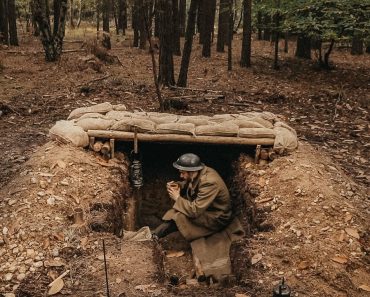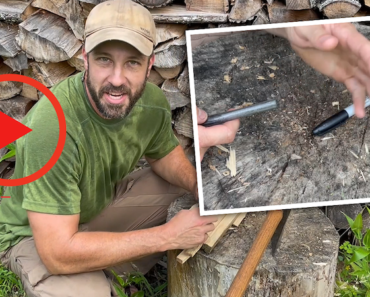The popular phrase “location, location, location” is often used by real estate hustlers to stress the impact that a property’s location can have on its value and appeal. In essence, location plays a crucial role in determining the worth and attractiveness of a piece of land or structure, even when all other factors are equal.
When it comes to identifying desirable locations, people will often look for features such as scenic views, safe neighborhoods, access to healthcare, quality schools, transportation, entertainment, and shopping. Other practical factors, such as safety, economic development, population density, taxes, personal freedoms, and sustainability, may also come into play.
However, when assessing the viability of a location for surviving a natural or man-made crisis, location becomes even more critical, and numerous other factors need to be considered. These elements can help determine whether a location is desirable and whether relocating there can enhance survivability.
In today’s article, we will examine some of the factors to consider when assessing a location’s livability and survivability. It also provides guidance on how to manage the daunting task of evaluating all the variables involved in relocating to a safer location.
How your location affects your chances of survival
When it comes to emergency preparedness and survival, your choice of where to live and work can have a significant impact on your chances of success. A desirable location can greatly improve your odds, while an unfavorable one can do the opposite. However, every location carries some level of risk, and adjustments and compromises are always necessary.
In life, there are no guarantees, but we can take steps to give ourselves the best possible chance of survival. While certain aspects of life are beyond our control, we have many options in other areas, and it’s crucial to focus on these opportunities.
The importance of thorough research before making decisions
When making important decisions, it’s crucial to conduct thorough research and obtain accurate information. Gathering, studying, weighing, and considering as many variables as possible are necessary to make solid, well-reasoned decisions. To help you find your desired survival retreat, we outline some factors to consider during the research process:
Take things slowly – Patience is key, so give yourself enough time to conduct solid research on a location and analyze your findings. Unknowns will gradually reveal themselves as you delve deeper, and rushing the process will only short-change you.
Clearly define your objectives and priorities – Without a clear understanding of what you’re looking for, it’s unlikely that you’ll find it. Keep your objectives/priorities in mind and at the forefront of your research.
Follow the breadcrumbs – Test your information because, most certainly, conflicting and contradictory information is likely to arise during your research. Treat all data with skepticism, regardless of its source.
Keep good records of your findings- Start a file for each state or area you’re considering to help you stay organized and make informed decisions.
Approach the research with an open mind – Avoid bias and preconceived notions, and look at everything with fresh eyes and without prejudice.
Things you need to pay attention to
Below are some of the more important categories that you should consider in your overall search parameters:
Climate: Some like the cold weather while others like the hot one. You may prefer a humid or dry atmosphere, windy or calm, while quality air and no pollution may be decisive factors for some folks.
When choosing a survival location, it’s crucial to consider the climate and weather patterns of the area, as they can significantly impact your overall health and well-being. Opt for areas with a mild to moderate climate and try to avoid extreme temperatures. Additionally, pay attention to the length of the growing season, rainfall, flooding, and overall weather patterns, especially if you plan on growing your own food.
Sustainability and self-sufficiency: Achieving a sustainable and self-sufficient lifestyle requires knowledge and skills, but also having access to a wide range of resources. Location is a key factor since the local climate and natural resources all play a role in achieving that self-sufficient lifestyle we all desire. Look for areas that offer ample natural resources, such as wood, water, and game.
Water source: When choosing a place to live, consider your water source options: public water system, private well, river/stream, or, if you picked a state with moderate regulations, rainwater collection. Research where the public water comes from and its safety and reliability. It’s also important to have a backup plan in case of a public water system failure or compromise.
Environment: When considering the environment, it’s essential to take into account the natural environment’s overall health. Many areas in the U.S. have suffered significant damage due to irresponsible corporate entities that disposed of toxic waste into public waterways or landfills. Soil quality and the types of crops that thrive in the area are also crucial factors to consider. Keep in mind that some corporations own the water and mineral rights on vast tracts of land, and there won’t be anything you can do about it when such companies decide to exploit those resources.
Population density: For me and other preppers out there, this factor is very important, and you should note that no matter the crisis, being close to a largely populated area will make things much worse for you and yours. As the population grows, so does the likelihood of encountering man-made problems when the brown stuff hits the fan.
Public services: Public services can be both a convenience and a burden, as everything comes at a cost. The more services you receive, the higher taxes you’ll pay. In some rural areas, you may need to pay for services such as road plowing, fire department, and EMS subscriptions, and public transportation may not always be available. It’s important to also consider the reliability of the grid power and explore any alternatives in case it goes down.
Traffic and road conditions: When considering a potential location, it’s important to not only look at commute times but also delve deeper into the area’s road conditions, traffic patterns, and enforcement measures, as well as driver ratings. Some cities have a reputation for bad drivers, and these cities often have high accident rates but also excessively high auto insurance rates. Don’t overlook these factors when making your decision. Prioritizing road safety can help ensure your well-being and peace of mind.
Hospitals and healthcare: Access to quality healthcare facilities, including hospitals, physicians, and specialists, is a crucial factor that is often underestimated when looking for places to relocate. It may not be a top priority for everyone, depending on their age and medical condition, but emergencies can happen unexpectedly. Thus, it’s vital to consider the availability and quality of medical resources in your potential survival location.
Schools and education: For families with children, the quality of local schools is often a top priority. Researching the local school districts, class sizes, percentage of certified teachers, and rankings is crucial.
Safety: Crime can have a significant impact on the quality of life in a community. It not only results in increased police presence and security expenses but also higher insurance rates for your home and vehicles. Besides higher costs, it can also take an emotional toll since some end up living in fear. It’s important to research actual crime statistics, including the percentage of violent and property crimes and crimes per square mile, and compare them to national statistics. Requesting recent police call logs and crimes in a given area can also provide valuable information.
Self-defense and gun laws: Protecting yourself and your family should always be a top priority in this country. Avoid states that limit your ability to do so, and be aware of laws governing the use of firearms in self-defense and your legal obligations when using them.
Economy: A strong and diverse economy provides opportunities for financial success regardless of an individual’s specific circumstances or skill set. However, a flourishing economy also tends to attract people from various regions, leading to higher real estate prices, traffic congestion, and an overall increased cost of living.
Jobs: Even if you are self-sufficient, it’s likely that you will still require some form of income. Traditional employment is the most prevalent source of income, but it’s also worth considering remote work or starting your own business. However, before embarking on a business venture, it’s important to research local regulations. You will soon discover that certain states require various licenses and permits.
Cost of living: When choosing a location to live, the overall cost of living is a significant factor to consider. It’s essential to compare the anticipated expenses of your target location to those of neighboring states or similar cities and states in terms of fuel, heating, cooling, taxes, food, insurance, utilities, education, and other expenses. It’s also important to weigh different factors, such as higher taxes versus better schools or more public services. Conducting a cost-benefit analysis can assist in making an informed decision.
Taxes: Taxes represent a significant portion of most family budgets, and it’s crucial to determine the overall tax burden. States like Florida and Texas have no state income tax, while others like New York and California impose substantial state income taxes besides federal income taxes. Sales tax, property taxes, and local taxes should also be considered. Homestead exemptions on primary residences are offered by certain states and can help reduce property taxes and safeguard the home against certain creditors.
Debtor protection: Although federal law provides basic debtor rights, many states have additional laws that offer stronger protections. These protections can be crucial in shielding you and your family from aggressive debt collection efforts. Some states allow creditors to seize all assets, including your home, while others safeguard your primary residence from collection.
Shopping: It’s important to factor in your consumer needs. Even if you’re self-sufficient, you’ll still need to shop for groceries and other supplies. Consider how far you’re willing to travel for shopping and the availability of convenient options. Keep in mind that the further goods have to travel to get to your location, the more expensive they will be. It can also be helpful to explore nearby shopping centers and interact with locals. This can provide valuable information about the availability and quality of goods in the area.
Proximity to air travel: Being close to an airport can be convenient for travel but can also bring drawbacks such as noise, traffic, congestion, and pollution. Consider whether the benefits outweigh the potential drawbacks.
Conclusion
It’s important to remember that there may not be a perfect survival location, but there are many options that can provide a higher level of safety and security. Conducting thorough research and utilizing available resources can save both time and money and greatly improve the chances of finding a suitable location that meets your needs and offers protection from natural and man-made threats.




























